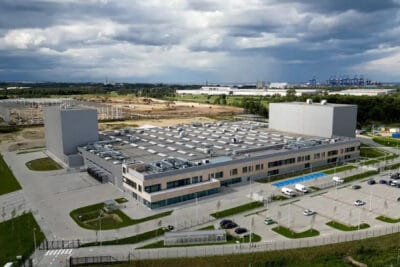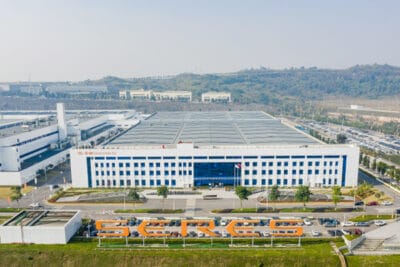TU Munich develops supercapacitor with hybrid materials
Researchers at the Technical University of Munich (TUM) have developed a highly efficient supercapacitor. The basis of the energy storage device is a novel graphene hybrid material that has comparable performance data to batteries currently in use.
Unlike rechargeable batteries, supercapacitors rely on capacitive rather than chemical energy storage. Their great strength is that they can store large amounts of energy very quickly and release it again just as quickly. Their weakness to date has been their low energy density. This is also expressed by the Technical University of Munich in the introduction to its press release: “While lithium accumulators reach an energy density of up to 265 Kilowatt hours (KW/h), supercapacitors thus far have only been delivering a tenth thereof.”
At the Technical University of Munich, a team led by Roland Fischer, Professor of Inorganic and Organometallic Chemistry, is working on improving this property. The key to this is said to be a high-performance and at the same time sustainable graphene hybrid material, which serves as a positive electrode in the energy storage device and is combined with a proven negative electrode based on titanium and carbon.
“The new energy storage device does not only attain an energy density of up to 73 Wh/kg, which is roughly equivalent to the energy density of an nickel metal hydride battery, but also performs much better than most other supercapacitors at a power density of 16 kW/kg,” say the researchers in a press release. The secret to the new “asymmetric” supercapacitor, they say, is the combination of different materials, specifically chemically modified graphene combined with a nanostructured Metal Organic Framework (“MOF”). The researchers say that through clever material design, they were able to chemically link graphene acid to the MOFs. “The resulting hybrid MOFs have a very large inner surface of up to 900 square meters per gram and are highly performant as positive electrodes in a supercapacitor.” In addition, the hybrid material is very stable: the new cell retains almost 90 per cent of its capacity even after 10,000 cycles, the team from the Technical University of Munich reports.
The research team is made up of international specialists. The project was supported by the German Research Foundation (DFG), the Alexander von Humboldt Foundation, the Indian Institute of Technology Jammu, Queensland University of Technology and the Australian Research Council (ARC), as well as by the European Regional Development Fund via the Czech Ministry of Education.
Supercapacitors are increasingly coming into the focus of scientists. A few weeks ago, researchers at Graz University of Technology investigated energy storage in a hybrid supercapacitor that has been unexplored so far. This represents a combination of battery and supercapacitor that is intended to unite the advantages of both technologies.





0 Comments